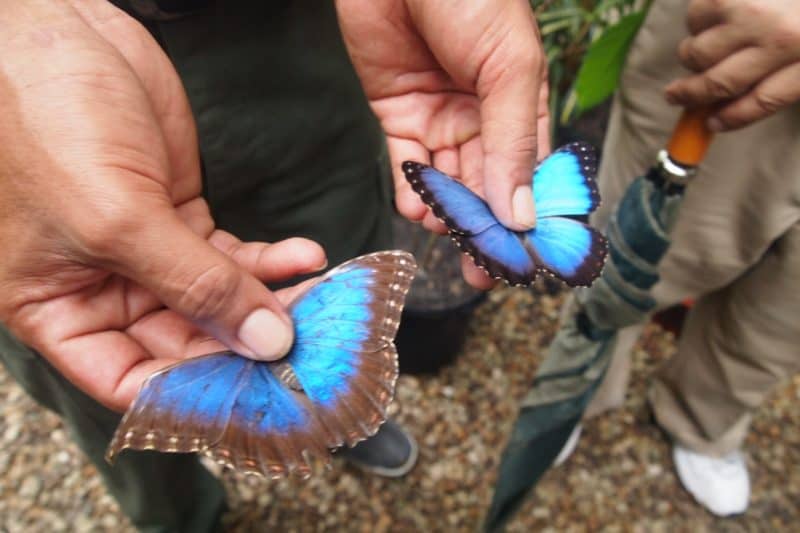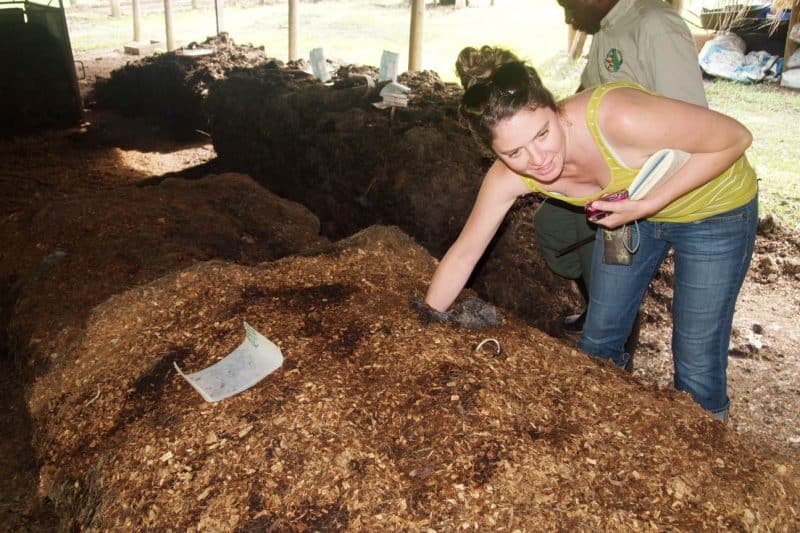Chaa Creek Resort in Belize is Proud of their Organic Gardens and Eco-Consciousness

A glorious cacophony awoke me around 6 am this morning at the Chaa Creek Resort in San Ignacio Belize. It was the sound of thousands of birds, each with their unique sound, telling me to wake up. There are so many birds here it’s hard to keep track, along with butterflies and lizards and thousands of other species. There is everything but people–in this Massachusetts-sized country, there are only 330,000 souls.
Tourists come here mostly from the US, but I was told that there are Chinese restaurants owned by immigrant Chinese, and that Canadians make up a huge percentage of the retirees who have chosen Belize as their final address. Though English is the main language, many, many of the workers at Chaa Creek resort speak Spanish. More than 100 locals work here and the resort plays a big part in helping local schools and bringing eco-education to all of their guests.

As part of this, we took a nature walk with David Juarez, one of their guides, who in about 100 feet was able to point out trees that cure just about any ailment you can think of. One tree gives a rash similar to poison ivy, two trees away is one that has bark that can help get rid of the itch!
After lunch we visited the Mayan Farm where nearly all of the vegetables used in the restaurant come from. Meshack, our guide originally from Tanzania, plunged his hands into a big compost pile, inviting us to do the same and feel the heat generated by the big pile. He waxed eloquent about the compost tea that was brewing in large blue containers, and showed us the biggest papayas I’ve ever seen, some as long as one foot. Row after row of cilantro, eggplants, tomatoes and dragonfruit, all lined up and set to be watered by drip irrigation. Crop rotation, heavy use of compost, and choosing the right plants to go next to each other are all of the ways they avoid using any pesticides here. It’s a remarkable farm.
In the distant woods we could hear the roar of howler monkeys, the small primates that have a giant roar and are famously heard in the early morning and at dusk here in Belize.
